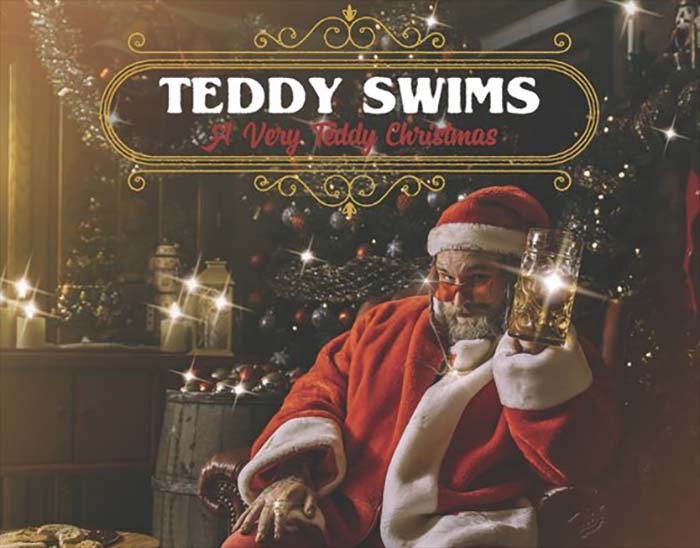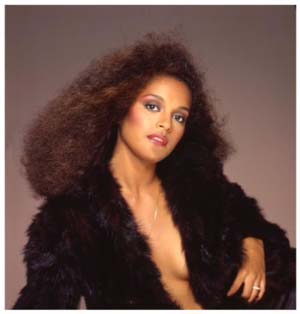
by Michael P. Coleman
“For me, it was never about the way that I looked, about wanting to be famous or being a celebrity. If I could have worked without fame and celebrity, that would have been the ultimate.”
The word “legendary” comes to mind when one recalls Jayne Kennedy Overton. She is an acclaimed actress, TV personality, broadcaster, producer, exercise guru, talk show host, model, singer, dancer, infomercial host, and product spokesperson. Kennedy Overton destroyed the myth that women couldn’t make it in the world of sports broadcasting, becoming the first and only female to work ring-side as a TV color commentator for men’s professional boxing and one of the first women to anchor a national sports broadcast, almost 40 years ago.
I sat down with the Emmy winner as she took a break in preparing her keynote presentation for Sacramento’s 6th Annual Exceptional Women of Color conference, to be held on September 13th. Among the surprises she had for me were her description of what I’d thought would be career highlights — her Miss Ohio crown or her groundbreaking role on NBC’s Laugh-In, for example — as relatively insignificant “blips on the radar”. She talked about why her performance in Lady Sings The Blues was edited out of the final cut of the landmark film, why she wasn’t allowed to be one of Charlie’s Angels, and how Different Strokes’ Gary Coleman inadvertently cost her a potentially-lucrative poster deal. Kennedy Overton also talked about her battle with endometriosis, and the challenges she faced in trying to make Jayne Kennedy “a household name” in a Hollywood that was a very different town for African Americans than it is today.
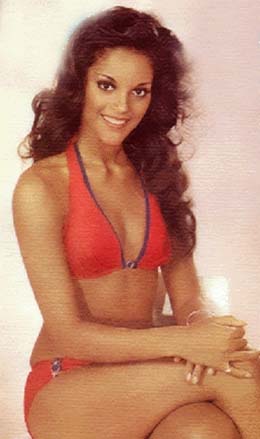
I grew up outside of Cleveland, Ohio, having been born in Washington DC. I always wanted to be in show business, telling everyone that I was going to go to Hollywood and be a movie star. I had no idea how that was ever going to happen!
I think a lot of people might be surprised to learn that your experience in beauty pageants early on, being the first black Miss Ohio winner and a finalist in the Miss USA pageant, wasn’t very significant for you. It must be a paradox for you to have blazed a trail for a number of women of color in fashion and modeling industry — Vanessa Williams, Halle Berry, Iman, Tyra Banks — creating an industry without trying to.
Don’t confuse not wanting to be a beauty pageant winner with not wanting to be in the entertainment industry. They’re two completely different animals. To me, the trails that I’ve blazed and the pioneering aspects of what I did in the 70s came from moving to Hollywood and deciding that to succeed, I’d have to meet as many people as I could and do as many things as I could. There were no avenues at that particular time for a black actress other than the handful of black pictures that would come up — probably one or two every three or four years. ANY magazine back then would say “No, we don’t put black women on the cover. We don’t hire blacks for this.” I even had an executive, a producer at Warner Brothers tell me “there was a reason they didn’t use blacks in movies: it’s because if a black face appears on the screen, the audience will get sidetracked and forget the plot of the movie.” A couple of years later, I went into the same studio to pitch a feature film that I wanted to produce. The executive spent the entire meeting leering at me, and after my presentation, he said to me “Oh my God! Debbie Allen was here pitching a project last week, and I was so infatuated with what she looked like that I don’t even remember what she was talking to me about.” I was so insulted!
What did you say to him?
I called him an idiot, I asked him how he could have the right to green light a motion picture, and choose to focus on how someone looks rather than what she’s saying, and I walked out. That’s the way it was back then. I had to go out and meet as many people as I could, knock down as many doors as I could, and I was just blessed to have the success that I did because at that particular time, Hollywood was not a place that was open to a black woman being successful. Today it’s very different. Black women have the opportunity to get a job, and once you get a job you have the opportunity to get publicity and have the world become familiar with who you are. There are options today that simply were not available in the 70s.
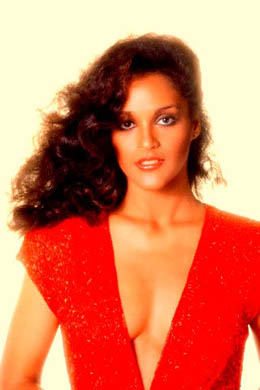
I had been working as a singer / dancer / actress / model…you name it…to make a living. Everyone kept saying “you can’t do that, because you’ll never be taken seriously as an actress”. That might have been true to some extent, but you couldn’t do that as a black actress in the 70s — you’d have starved. When I found out The NFL Today had an opportunity, I was excited. First of all, I’d always loved football. My dad loved football, baseball, wrestling, I competed in junior Olympics, we went to see my dad play baseball — all of his girls were his cheering squad! After I graduated high school, I did some PR work for the Cleveland Browns. So sports had always been a huge part of my life. I knew I could do the job, and I knew it would have been a passion project for me: to be able to work with all of these sports figures who had been my heroes. I managed to convince the head of sports talent for CBS out of New York to give me an audition. When I walked in, there were 15 girls there with blond hair and blue eyes, and then there was me. I said “Here we go again. I’m never going to get this job, I’m not what they’re looking for.” I decided to sit back, relax, engage in the process, give it my best and let it go. After I got back to LA, I got the call. CBS was concerned, though, wondering what the southern affiliates would say, for example, because I was black.
You were one of the first women, of any color, to be given a platform like that. That was pre-Oprah TV! Was putting a woman on the sports desk a conscious decision on CBS’ part? Now, women are calling sports all over the place, but that was not the case 40 years ago.
It absolutely was not the case, and it was a very conscious decision on CBS’ part to put a women in that arena. Phyllis George was before me. She had left to take another job, and that’s what created the opening that became my spot. I can’t say I walked in totally prepared. I’d never done live TV before. I asked CBS to give me training in that, and they declined. I asked whether I could come into the studio during my off time, because the shows were broadcast on Sundays, and they said no — they were not supportive of me in that role at all. It was extremely difficult. Print journalists hated the fact that TV broadcasters could get things out before them, so print journalists had two reasons to hate me. Every day was a challenge. I could have easily just ended up not believing in myself.
Why didn’t you just say enough’s enough, and quit?
Because it wasn’t enough. My parents had always taught me to be strong, and to always believe in myself, so I never let it get to me. I just ignored the people who didn’t support me. The people who mattered to me were the players, the owners, the coaches — and they were all tremendously supportive. If I called owners for an interview, I got the interview. I called to get Joe Namath. He’d said that there was no way he was going to do an interview with Phyllis George. CBS said they were doing it with Jayne Kennedy, and he was in! (laughs). Julius Erving had told the media that under no circumstances were they allowed into his home to do an interview, and CBS Sports Spectacular wanted an interview at his home. He said “Only if Jayne does it.” Greatest Sports Legends had been after Bill Russell to do an interview for years. He called and finally agreed if I would do the interview. So those were the people who mattered to me.
One name you haven’t mentioned is Mohammad Ali. I understand that he was very supportive early on.
He actually helped me get the job on NFL Today. I was initially signed to a six week contract., hardly any pay at all, and on trial for six week with a promise to pick up my contract if I did well, and renewed on a year-to-year basis. During the second week of my contract, Mohammad Ali had a fight coming up with Leon Sphinx in New Orleans. CBS Sports Spectacular had been trying to get the post fight interview. I was in the studio one Friday, and overheard a conversation with CBS brass and their attorneys, strategizing about how they could secure the interview and the astronomical amount of money that it would cost IF they were successful. I said “I can get the interview for you”, and they all laughed. I told them to put me and a crew on a plane, and I would bring the interview back the next day. So they put us on a private jet down to New Orleans, and I called Mohammad and told him what I wanted. He said he would leave a key to his suite at the hotel, and told me to meet him there immediately after the fight. I got my crew all set up in his suite, and when he walked in we were rolling. He walked over to the camera and said “I’d only do this for my friend, Jayne!” I took the interview back to New York, it aired on CBS Sports Spectacular that Saturday, and on Monday I had my contract picked up.
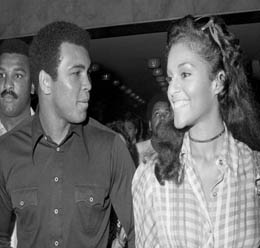
I had gone to a programmers’ conference in Las Vegas. I’d heard that Mohammad was talking to a group of programmers at one of the suites at the hotel. I walked into a room packed with journalists and photographers. Mohammad Ali was sitting on the dresser, entertaining the way he always does. He looked over at the door, and he said “Oh, my God! That’s Jayne Kennedy!!! C’mere!!!’ He pulled me over and sat me on top of the dresser with him, and we just started talking. We became friends and remained friends for a long time.
Your transition away from CBS Sports wasn’t quite as smooth…
No…CBS fired me (laughs), so that wasn’t much of a transition. In a nutshell, the NFL Today job was one that ran from August to February. I got permission from them when I was hired to continue as an actress during the down months. I took a show called Speak Up, America on NBC with George Slaughter, who’d hired me for Laugh In years before. We had already taped nine weeks of shows, and CBS fired me claiming that I’d accepted a contract with a competing network. With an attorney’s help, I got rehired and fired three times by CBS Sports. The bottom line was that they really wanted to get Phyllis George back on the desk. At that time, she was married to the governor of the state of Kentucky, he was on the board of the Kentucky Derby, and CBS wanted to secure the broadcast rights to that event. So it was all politics.
So you’re on the market. There were a few television shows on the air at the time that it would seem you were picture-perfect for. Did you ever audition for ABC’s Charlie’s Angels?
Yes, I did.
What do you recall of that process?
It was when they were revamping the lineup, sometime midway through the show’s run. They said I was too tall, and that they would never be able to find matching partners for me, whether it be the other girls on the show, or guys my character would be dating. I always heard that I was too tall for this, that, or the other.
I think you being too tall to have been one of Charlie’s angels will be pretty funny for fans of that show. I mean, no disrespect to the ladies on the show, but for me, as an black boy watching in the 70s, Farrah just didn’t do it for me…
Right…(laughs)
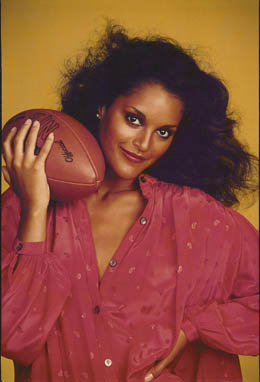
Well, the names that you’ve mentioned were the only faces that were out there, that’s why you were drawn to them! There were only a handful. I was blessed enough to be one of those people. And I’ll tell you a funny story about the Farrah Fawcett poster. When I was on The NFL Today, my second year, Farrah’s poster was the #1 selling poster at that time. I thought it would be a great idea to do a poster with me and a football, as NFL Today was the #1 sports show in America and I was also on six other shows that year that received some of the highest ratings in the country that year, so the timing seemed great. So Lamont McLemore from The 5th Dimension did this photo of me with a football, and it was a great shot. We submitted that to the company that had done Farrah’s. They said “Nah, um…we don’t use black people on posters because black audiences don’t buy posters of black people.” I challenged them on their argument, and they told me they had put a black person on a poster once, and it didn’t sell. I asked who the person was. They said Gary Coleman.
(Laughs)
Your reaction is the same as mine was, Michael. I said “You have GOT to be kidding me!”
Well, I had your picture — not Gary Coleman’s — taped to my bedroom wall. I ripped it out of Right On! magazine. We didn’t buy black people on posters because there were none to buy.
That’s right, that’s how they controlled it, through distribution. And it wasn’t that black people weren’t trying to make films, it was distribution houses refusing to show them and studios refusing to make them.
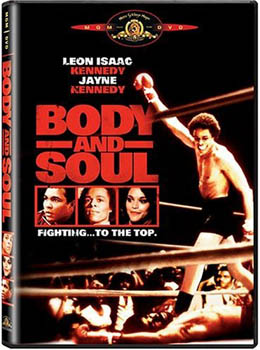
Well, we basically created a vehicle for me because there just weren’t very many movies being offered to black actors. You have to remember back then there were only three networks. There was no cable. There was no direct to video market. There was no Netflix. There was NOTHING. Just the primary studios: Universal, MGM, Paramount, and the three original TV networks. So if you didn’t get a job there, you didn’t work. I was blessed to do a lot of sitcoms, but that wasn’t the type of acting that I wanted to do. Even with Body & Soul, when I won the NAACP Image Award for Best Actress, it wasn’t fulfilling because I didn’t really do anything in that role. But the reason probably that I won was that there weren’t that many movies around with black actresses in them. I don’t think that I ever had a chance to actually sink my teeth into an acting role. The kinds of things that I was really looking forward to, I never really got the chance to do. To me, acting was always primary, but opportunities were nonexistent. I would love to think that one day I’ll get that opportunity.
Tell me about the types of roles you wanted to get into.
Well, for me it was never about the way that I looked. It was never about wanting to be famous, about wanting to be a celebrity. If I could have worked without fame, without celebrity, for me that would have been the ultimate. I watch some of these young girls, these celebrities today who seem to want to be famous. To me, that’s a bunch of BS. If you really love to act, that’s not what you want. For me, it was never about the way that I looked.
Well, you’d have to admit that you had doors opened for you because of the way you looked.
Well, sure. I got hired — a lot — because of the way that I looked. But I also wound up on the cutting room floor because of the way that I looked (laughs), as I did with Lady Sings The Blues.
That’s one of my favorites! I didn’t know you’d filmed that movie! What role did you play in it?
I played Billy Dee Williams’ first girlfriend, before he met Diana Ross. We had all of these scenes, and I did a great job! Then Berry Gordy was looking at the rough cut of the movie, called me up and said “You know what? I don’t want to distract the audience from Diana Ross. I don’t want to see all of these scenes with Billy Dee and his other girlfriend. The first time we see Louis McKay, that’s also going to be the first time that Diana’s Billie Holiday sees him. I want Diana’s ‘Oh my God!’ experience and perspective to be shared by the audience.” He said if the audience is looking at Billy Dee and me, they’re not going to buy Billy Dee and Diana, and Motown cut me out of the movie.
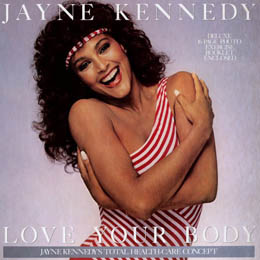
All of my life I’d been involved in exercise, from middle school on. It was a major part of my life. Jane Fonda’s exercise program had just shot through the roof. Billy Davis from The 5th Dimension approached me about doing an exercise program, and I agreed — if I could produce it. I wasn’t going to just be talent. It was very well received, shooting to #3 after Jane’s and Richard Simmons’.
That’s not a bad #3 for an exercise video, behind Jane Fonda & Richard Simmons…
That’s right! I was perfectly happy with that.
What are your thoughts about black images in media today? How is those images different that when you were getting started?
Well unfortunately there are a lot of images in today’s media that are so negative. You kind of wish it were like it was in the 70s! Reality TV is out of control. Young girls are growing up thinking this is what they’re supposed to behave like. And unfortunately because parents need the duel income, they’re not always able to be there for their kids. And children are being raised by themselves. We end up with a whole lot of issues that need to be dealt with. One of them is the need for self-esteem and self-respect. Unfortunately, our young men and women are being bombarded with delusions of grandeur. They’re thinking about the money and the fame, and not thinking about what type of person they really want to be.
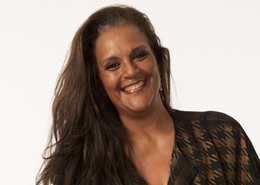
I’d always wanted to have children, but I just kept saying that the time wasn’t right. NFL Today came up, so I put it off. Then it was something else — it was always something else. Then, in 1983, I developed endometriosis. It was a very painful condition. And that’s what put an end to the Love Your Body exercise series — I couldn’t even do ONE sit up. We had taped three vidoes, and I was about to enter a global contract to do exercise videos, and I had to quit due to the endometriosis. My doctor had tried several treatments and medications…there was no cure for it, but we were trying all of these different things in the hope that something would work. Nothing did. My doctor told me that getting pregnant wouldn’t cure it, but it would diminish the symptoms. So I said “Ok, God, I’ve got the message loud and clear.” So I walked away from everything and said I’d try to have a baby. I had been told that one of the side effects of endometriosis was infertility. I said “I believe God is saying this is the time.” Within three months of making that decision, I was pregnant. Regarding walking away from work…I just wanted to be there for my kids. I didn’t want to be on the road. When I was working, I was never home. The last year I was working, I was only home for 27 days during the entire year. And I didn’t want to raise kids on that type of schedule.
What do we have to look forward to when you come to Sacramento? Can you give us a little preview?
No…I’ll save it for the conference! (Laughs) I think your agenda for the upcoming Exceptional Women Of Color conference is right on point. We have to be there for one another more. And especially, we have to be there for our young people.
Get your tickets for the 6th Annual Exceptional Women Of Color conference, featuring Keynote Speaker Jayne Kennedy Overton, at www.sacculturalhub.com/events/women-of-color-retreat.
Michael P. Coleman is a Sacramento-based freelance writer. Connect with him at michaelpcoleman.com or on Twitter: @ColemanMichaelP
